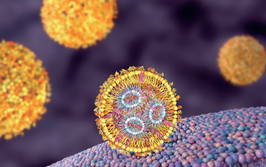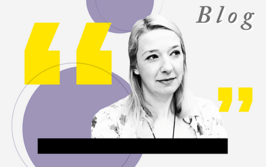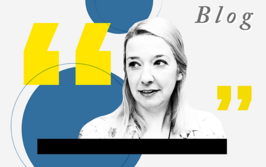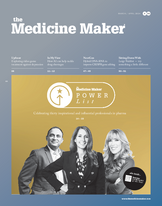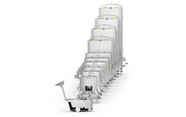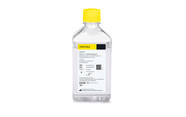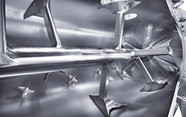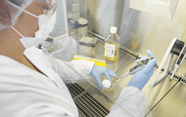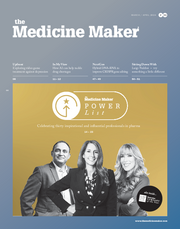Cooking, Computing, and Collaborating
Sitting Down With Christian Baber of the Pistoia Alliance
| 4 min read | Interview
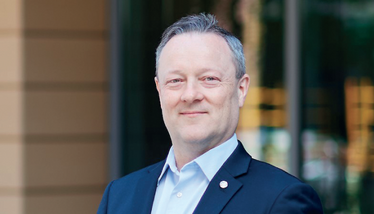
Credit: Interviewee supplied
What interested you in a career in life sciences?
My dad taught science; my mum taught math. When I was really young, I got a ZX81 home computer and became involved in setting up the computer club at school. I always enjoyed science, but what really kicked off the interest in life sciences was a summer job at British Biotech. We worked with data and we published our results. When other people started using our work and incorporating it, I realized that this was a major interest for me. Working with data is a challenge but it can have huge benefits to society. If you can do something that stimulates you personally, as well as contributing to society, then you are on to a winner. I’ve enjoyed my career and it’s nice to work in an industry that is actually doing good.
How did you become involved in the Pistoia Alliance?
I’ve been involved with Pistoia for a long time now, but I started off at Cubist Systematic, where I ran the cheminformatics and compound management group. Cubist became involved through labs for the future, AI, and data. The first formal Pistoia Alliance meeting I went to was as a judge on the President’s Challenge – a competition between startups. After that, we joined other projects and started supporting the teams. Over the years, I’ve introduced more companies to the alliance and gotten involved with more projects.
I’ve generally worked in R&D, particularly in the earlier stages – and that’s Pistoia’s sweet spot. But at Pistoia the mission of driving innovation through collaboration offers greater breadth and potential impact.
In what ways do your own goals and values align with the Pistoia Alliance?
I’ve found that, even when I’ve been offered roles as an individual contributor, I found people work better collaborating as a group. There’s so much knowledge across the pharma industry that no single company has to waste resources. There’s no competitive advantage when it comes to how we comply with agency mandates, tackle ethical issues, or organize our data. So it’s really about that push to get further with getting drugs to market and helping patients.
Everybody in the industry believes that is the ultimate goal. So if we can accelerate that by even a year or two, it offers great value. I believe that collaboration will help everybody in the industry and in society.
How have your other roles given you the experience to help address the challenges that the Pistoia Alliance is working to solve?
My last few roles have been at the executive level, leading teams and pulling people together. When I was leading data informatics and systems for development within R&D, we had to collaborate with scientists in various groups, as well as with manufacturing. Once you get to this level within industry, you have to know the scientific side and the technical side and have a good breadth of understanding. But it’s really about working with people who know what you don’t know. Within Pistoia, as we pull in experts, we rely on members to contribute by telling us what is needed to address a problem. That’s another thing that appealed to me about working with the alliance – it is very much a member-led organization that works how I like to work. We gather the expertise and the knowledge to address real-world problems. We’re not a solution looking for a problem; the problem is looking for a solution.
How do you apply that experience to inspire and motivate those joining the Alliance?
I inspire them by showing them what we’re doing, as well as what we can do. I like to communicate how we work as a team and how everyone is welcome to submit ideas, as well as how our associates will work with members of the alliance to develop those ideas. There has to be a consensus that these ideas are important and that there are people across the industry willing to collaborate. You can either go quickly alone – or go far together. The aim is to take these ideas through to the end, to go far, and provide benefits across the industry.
What does the future look like for global life science partnerships?
There’s so much change in technology, as well as in drug development. All of this change makes collaboration ever more important. Imagine each company going off and developing their own AI ethics and security policies; this is inefficient. With all the mergers and acquisitions in the industry, there is a huge risk of data mistranslation. Partnerships are hugely important during times of change and innovation.
What interests you outside of work?
I learned to cook because I love to eat and drink, and socialize – from casual barbecues to more formal dinner parties. I also love being in the garden and playing with the dog. I’m a bit of a homebird really!
I also love developing my own AI algorithms. For example, I’ve got a machine learning method for predicting football results, upon which I run a modestly successful betting pool! I do similar things with investing and playing with data. And I love card games and board games.
To watch the full interview with Christian Baber, check out the video below.




